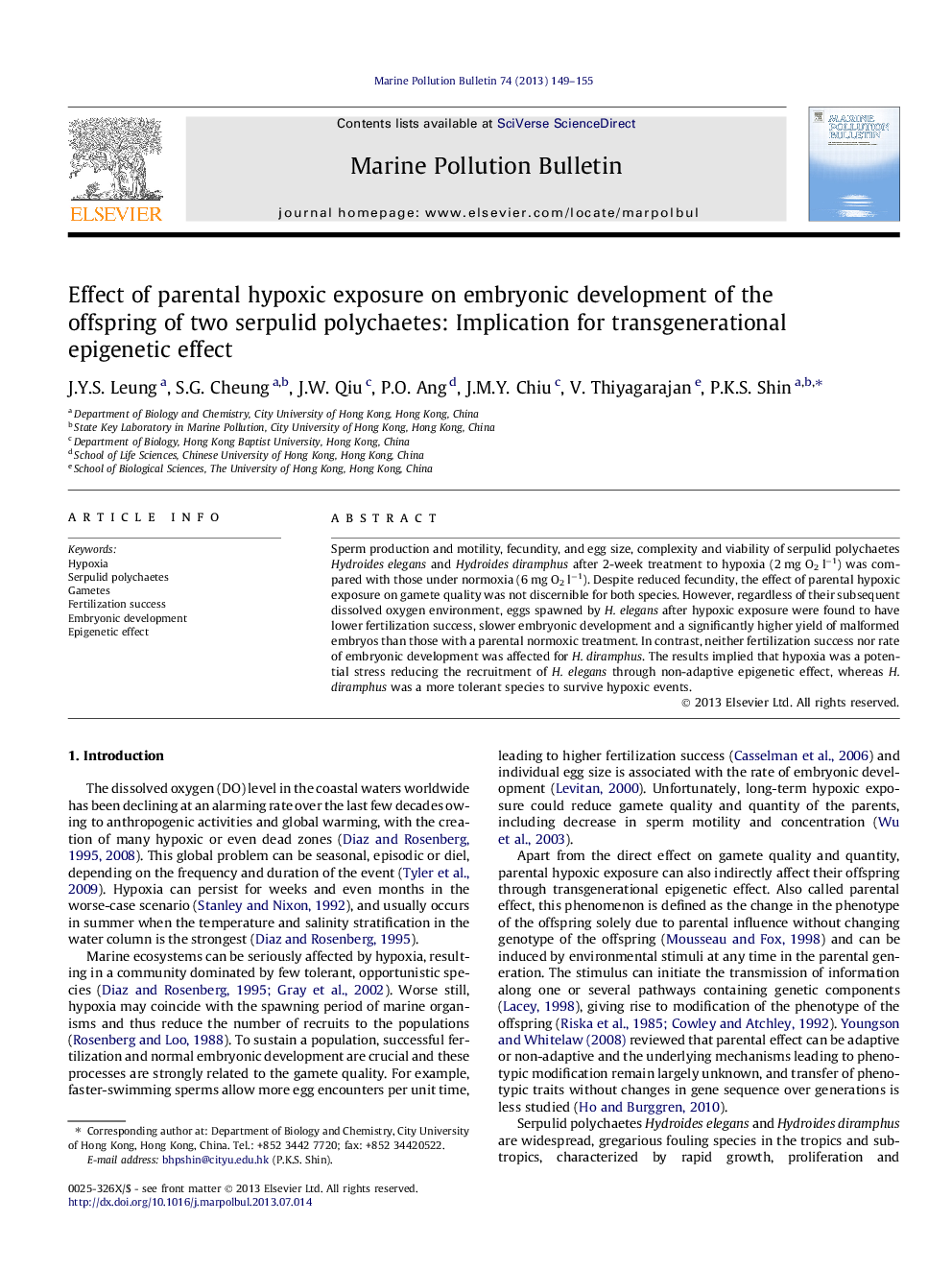| Article ID | Journal | Published Year | Pages | File Type |
|---|---|---|---|---|
| 6359649 | Marine Pollution Bulletin | 2013 | 7 Pages |
Abstract
Sperm production and motility, fecundity, and egg size, complexity and viability of serpulid polychaetes Hydroides elegans and Hydroides diramphus after 2-week treatment to hypoxia (2Â mg O2Â lâ1) was compared with those under normoxia (6Â mg O2Â lâ1). Despite reduced fecundity, the effect of parental hypoxic exposure on gamete quality was not discernible for both species. However, regardless of their subsequent dissolved oxygen environment, eggs spawned by H. elegans after hypoxic exposure were found to have lower fertilization success, slower embryonic development and a significantly higher yield of malformed embryos than those with a parental normoxic treatment. In contrast, neither fertilization success nor rate of embryonic development was affected for H. diramphus. The results implied that hypoxia was a potential stress reducing the recruitment of H. elegans through non-adaptive epigenetic effect, whereas H. diramphus was a more tolerant species to survive hypoxic events.
Related Topics
Physical Sciences and Engineering
Earth and Planetary Sciences
Oceanography
Authors
J.Y.S. Leung, S.G. Cheung, J.W. Qiu, P.O. Ang, J.M.Y. Chiu, V. Thiyagarajan, P.K.S. Shin,
